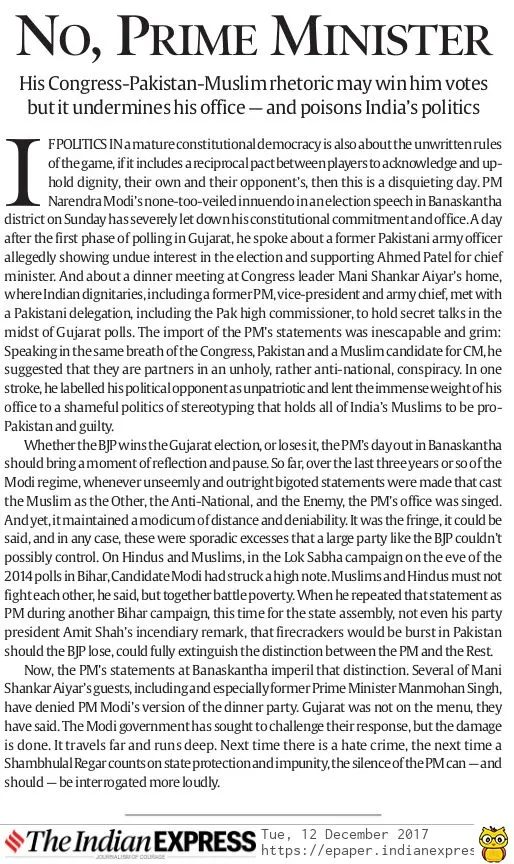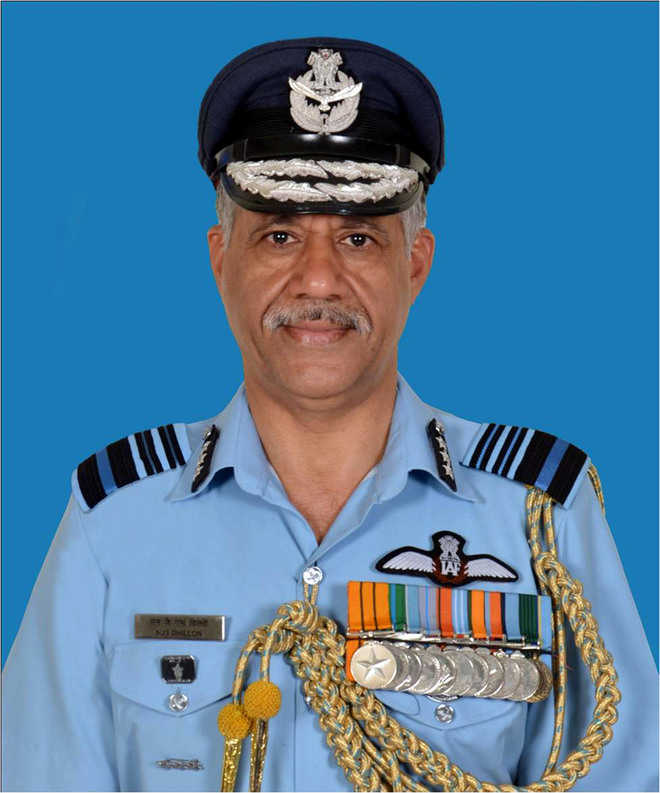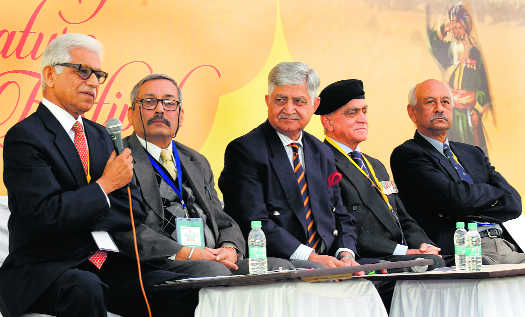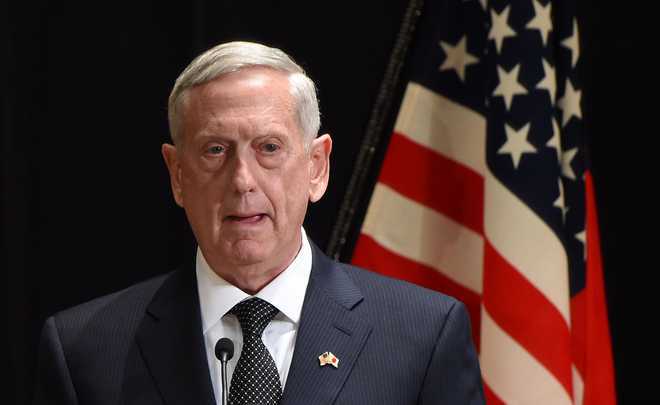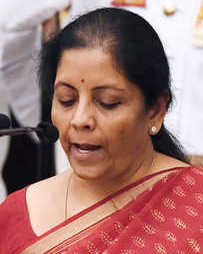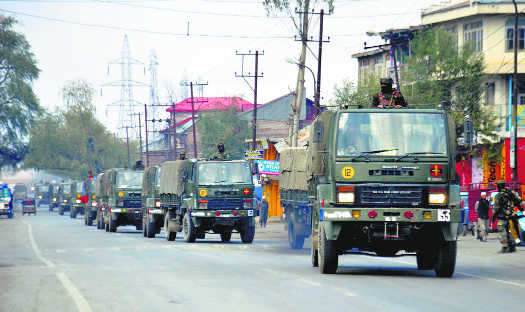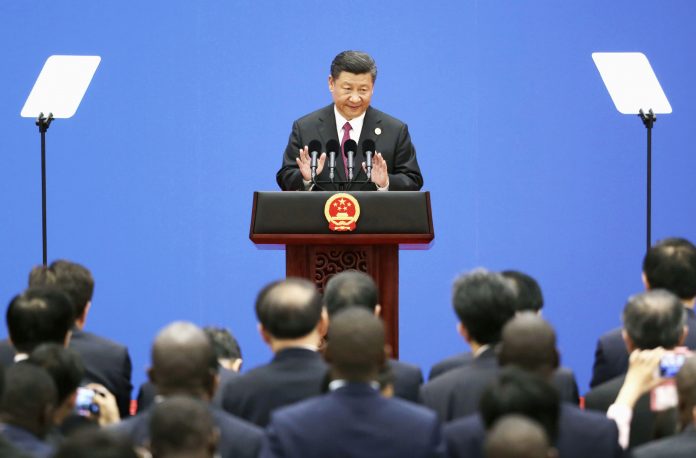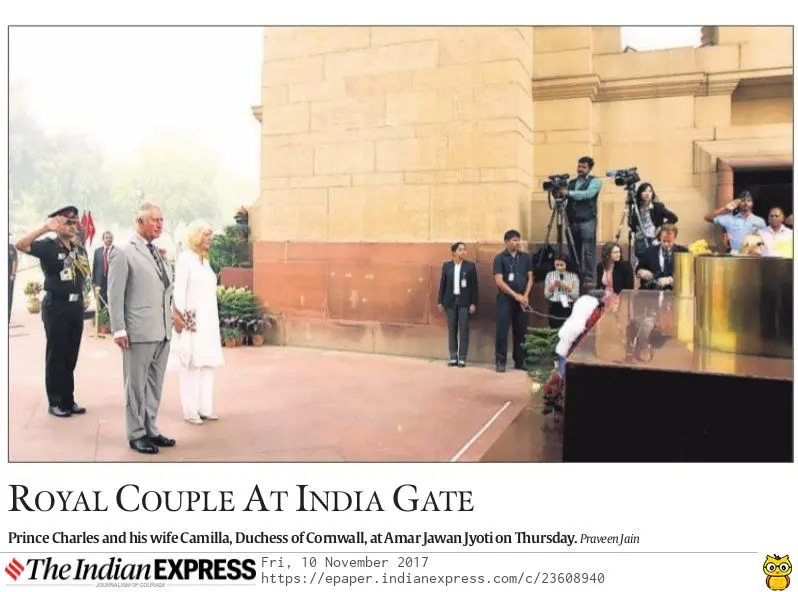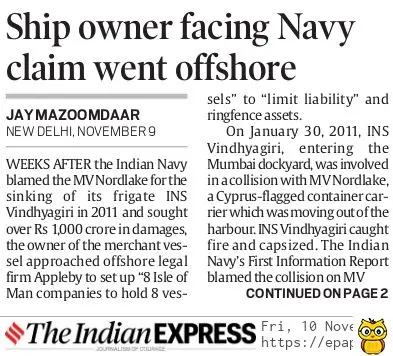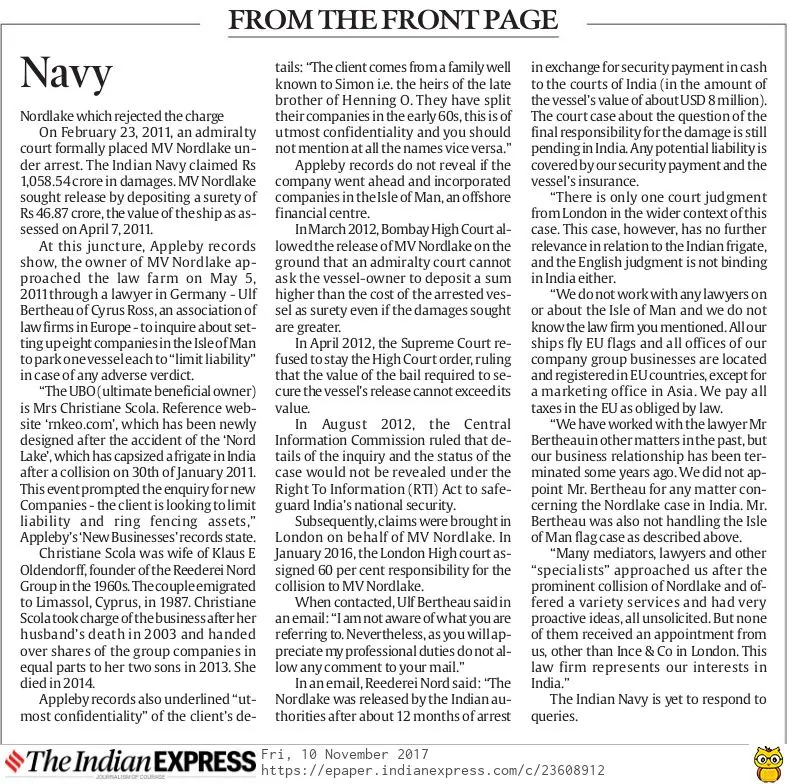To PM: ‘Canards. Apologise’
Ex-PM: Ill-thought transgression, no Gujarat talk with Pak dignitaries
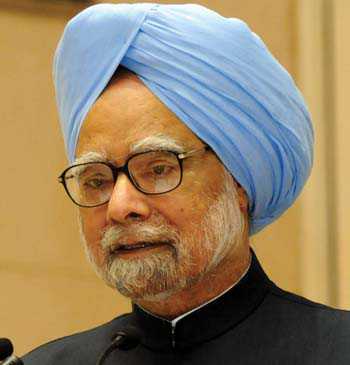
Dr Manmohan Singh, Ex-PM
New Delhi, December 11
Former Prime Minister Dr Manmohan Singh today lashed out at PM Narendra Modi for “spreading canards” about a recent dinner between some Indian and Pakistani dignitaries and said the PM should “apologise to the nation for his ill-thought transgression”.He was speaking after Modi accused the Congress of “hobnobbing with Pakistan in attempts to impact election results in Gujarat”.
Editorial:Arrest them all
“I am deeply pained and anguished by the falsehood and canards being spread to score political points in a lost cause by none less than PM Narendra Modi. Fearing imminent defeat in Gujarat, desperation of PM to hurl every abuse and latch on to every straw is palpable,” Singh said in a statement, adding that the PM, with his insatiable desire to tarnish every constitutional office, including that of the former PM and Army Chief, was setting a dangerous precedent.(Follow The Tribune on Facebook; and Twitter @thetribunechd)In a signed statement, Singh said Gujarat elections were not discussed at the recent dinner meeting, which former Congress MP Mani Shankar Aiyar hosted. The dinner was attended among others by former Pakistan foreign minister Khurshid Mahmud Kasuri.“I reject the innuendos and falsehoods as I did not discuss Gujarat elections with anyone else at the dinner as alleged by Mr Modi, nor was Gujarat issue raised by anyone else present at the dinner. The discussion was confined to India-Pakistan relations. None of those who attended the dinner could be accused of indulging in any anti-national activities,” Dr Singh said.The former PM hoped the PM “would show maturity expected of the high office he holds instead of concentrating his energy solely on erroneously conceived brownie points. I hope the PM will apologise to the nation”.Dr Singh, who attended the dinner along with former Vice-President Hamid Ansari, added that the Congress did not need any sermons on nationalism from a “party and PM whose compromised track record on fighting terrorism is well known”.“Let me remind Shri Modi that he had gone to Pakistan uninvited after the terrorist attacks in Udhampur and Gurdaspur. Let him also tell the country the reason for inviting the infamous ISI of Pakistan to our strategic airbase in Pathankot to investigate a terror attack that emanated from Pakistan,” Singh added. — TNS‘Don’t lamely question public service record’“My track record of public service to the country over the last five decades is known to everyone. No one, including Shri Modi, can lamely question it to gain lost political ground.” Dr Manmohan Singh, Ex-PM‘Must be prepared to answer questions’“The meeting was a political misadventure… Congress should explain the context of attending the dinner hosted by suspended party leader Mani Shankar Aiyar for Pakistan diplomats. The main Opposition party was expected to follow the national policy, which states that terror and talks cannot go hand-in-hand. If anyone defies the national line, he should be prepared to answer questions.” Arun Jaitley, FM
Jaitley rules out PM apology
Tribune News Service
New Delhi, December 11
Virtually ruling out an apology by Prime Minister Narendra Modi, Finance Minister Arun Jaitley today charged former PM Manmohan Singh with defying the national line by meeting Pakistan diplomats and demanded to know the context, relevance and necessity of such a meet.Terming the meeting as “political misadventure”, Jaitley wanted Singh and the Congress to explain the context of attending the dinner hosted by suspended party leader Mani Shankar Aiyar for Pakistan diplomats.He said the main Opposition party was expected to follow the national policy, which states that terror and talks cannot go hand-in-hand. “Is (the) main Opposition party not part of the State?” he said.Jaitley said if anyone defies the national line, he should be prepared to answer questions. “It is a political misadventure, it has a political cost,” he said.Hours after Singh asked the PM to apologise to the nation for setting a “dangerous precedent”, Jaitley said he wanted the former PM to explain what transpired at the meeting. He went on to defend his government’s track record of fighting terror, saying no government in the past has a track record this government has in fighting terrorism.In response to Singh’s demand for apology, Jaitley said people who had violated the national policy of talks and terror not going hand in hand should apologise.Earlier, the BJP, while hitting back at Singh on why it took him “over 48 hours to accept” that a “hush-hush” meeting with the Pakistan envoy did take place, wondered the need for Pakistan to issue its “unwarranted” advice on elections to a democratic country like India.Condemning Pakistan foreign office spokesman Mohammad Faisal’s statement, the BJP called it a confirmation of Modi’s viewpoint on Congress’ involvement. Law Minister Ravi Shankar Prasad said the statement appeared to be aimed at bailing out the Congress.Faisal in his tweet said: “India should stop dragging Pakistan into its electoral debate and win victories on own strength rather than fabricated conspiracies, which are utterly baseless and irresponsible.”Prasad said: “I wish to tell Pakistan that Indians are capable of contesting India’s democracy on their own as they do…. India completely abhors any outside interference in India’s electoral affairs.”Also, BJP leader GVL Narasimha Rao said: “Why has it taken 48 hours for Dr (Manmohan) Singh to accept the meeting took place. Why did the Congress leaders deny yesterday?” (With agency inputs)
Pak stays at centre of Gujarat election battle
MANMOHAN VS MODI ExPM seeks apology to nation as meddling row intensifies
›
My track record of public service to the country over last five decades is known… No one, including Modi, can lamely question it to gain lost political ground. MANMOHAN SINGH, former PM
It is surprising that for a misadventure the Congress indulged in, to which some of its senior leaders became a party, they should expect the PM of India to apologise.
ARUN JAITLEY, finance minister
NEW DELHI: Former prime minister Manmohan Singh sought an apology to the nation from Prime Minister Narendra Modi for insinuating that he, and other members of the Congress party, may have colluded with Pakistan; India’s neighbour called Modi’s allegations “baseless and irresponsible”; and BJP leaders saw Pakistan’s response as “suspicious” and asked why the Congress had taken 48 hours to admit to a meeting between its leaders and Pakistani officials including the high commissioner.
The back and forth over Pakistan started as a sideshow of the ongoing campaign ahead of the second phase of the elections to the Gujarat assembly on December 14, but soon grabbed centre stage.
On Sunday, Modi referred to a Facebook post by a former director general of the Pakistani army, Sardar Arshad Rafiq, saying Congress leader Ahmed Patel should be the next chief minister of the state, and to a meeting in Congress leader Mani Shankar Aiyar’s residence attended by Singh, the former vice president of India, Pakistan’s former foreign minservice ister, and the country’s high commissioner to India. The prime minister said the meeting happened last week, a day before Aiyar called him “neech” (lowly). Aiyar has since apologised and also been suspended from the primary membership of the Congress.
On Monday, Singh, 85, said Modi’s claim was an “illthought transgression” and rejected his charge as “innuendos and falsehoods” . Congress spokesperson Anand Sharma accused the PM of dragging political discourse to an “unacceptable low” by making statements that harmed the dignity of the prime minister’s post.
In his statement, Singh said the meeting on December 6 at Aiyar’s house was restricted to discussions about India’s relations with Pakistan and that the Gujarat polls didn’t figure in the conversation.
“My track record of public to the country over last five decades is known to everyone. No one, including Modi, can lamely question it to gain lost political ground,” Singh said.
Pakistan too, refuted charges of a secret meeting. “India should stop dragging Pakistan into its electoral debate and win victories on own strength rather than fabricated conspiracies, which are utterly baseless and irresponsible,” Pakistan Foreign Office spokesperson Mohammad Faisal tweeted.
Hours later, the BJP hit back; law minister Ravi Shankar Prasad slammed Pakistan for giving “lessons”. “What is curious is that this happens and Pakistan comes out with an official statement… in many ways seeking to bail out Congress party. Is it too suspicious? Surely, the country will draw its own conclusion,” he added.
Finance minister Arun Jaitley charged Singh with defying the stated national policy on terror by meeting Pakistani diplomats and demanded to know the context, relevance and necessity of such a meet.

Modi alleges Pak meddling in polls
ATTLE FOR GUJARAT Congress hits back, says why not send Pak’s high commissioner home if there is interference
PALANPUR (GUJARAT)/NEW DELHI: Prime Minister Narendra Modi played the Pakistan card during his Gujarat campaign on Sunday, alleging that the hostile neighbour was meddling in the elections to the state assembly, and questioning some senior Congress leaders’ recent meeting with Pakistani officials, including the country’s high commissioner to India.

Addressing a rally in northern Gujarat’s Palanpur, Modi referred to a Facebook post by former director general of the Pakistan army Sardar Arshad Rafiq, saying that senior Congress leader Ahmed Patel should be the next Gujarat chief minister. The post was covered by a section of the Indian media.
Minutes later, Patel, Congress president Sonia Gandhi’s political secretary, hit out at Modi. “It’s a foregone conclusion that he has abdicated the politics of development in both action and words. But does it befit the stature of the Prime Minister to rely on canards, rumours & lies just for an election? This is very sad,” Patel tweeted.
The BJP has governed Gujarat for 22 years.
The Congress is hoping to unset the BJP by tapping angst over the agrarian crisis and the implementation of the goods and services tax, and on the strength of a coalition it has built with Patidars, some other backward classes, and Dalits.
The BJP is hoping to retain power on the strength of the popularity of Prime Minister Modi, who was chief minister of the state for 13 years, and its record of development and governance.
Analysts expect it to be a close fight, although the BJP has maintained that it is confident of bettering its tally of 119 seats in the 182-member assembly in 2012. Opinion polls give the Congress anything between 37 and 85 seats, and the BJP 92-141.
On Sunday, the Prime Minister continued his attacks on the Congress and its suspended leader Mani Shankar Aiyar over the latter’s “neech aadmi” (lowclass man) jibe at Modi.
The Prime Minister drew a connection between Aiyar’s remark and Pakistan’s interference.
“There were media reports yesterday about a meeting at Mani Shankar Aiyar’s house. It was attended by Pakistan’s high commissioner, Pakistan’s former foreign minister, India’s former vice president and former Prime Minister Manmohan Singh,” Modi said. Adding that they met for almost three hours, he said: “The next day, Mani Shankar Aiyar said Modi was ‘neech’. This is a serious matter.”
For a PM like Modi to allege Pakistan interfered in Gujarat elections is sad and disappointing
The last American presidential election was, allegedly, swung by Russia. The outcome of the present Gujarat election will be decided, if Prime Minister Modi is to be believed, by Pakistan.
In the common man’s parlance this would be called spitting in one’s own face. All the more so, given the braggadocio that one is presiding over a hard state, as against the lamentably weak state that the UPA maintained. How come you can’t protect a state election from palpable external interference by a rogue state, which is not a patch on you?
The inability to protect an election is far more condemnable than the inability to protect the borders. If there is an urgent and compelling case for mounting a “surgical strike”, it is here. All citizens of India, including professional patriots, must urge the PM to spare none involved in this outrage on our foremost democratic institution. Pakistan must be made to pay for this inexcusable villainy.
First, “the nation wants to know” – the PM must reveal to all of us the factual basis for making a statement as unnerving as this. The Election Commission must initiate a thorough inquiry into how the Gujarat elections is infiltrated by Pakistani saboteurs. The PM’s allegation casts a serious aspersion on the ability of the EC to conduct “free and fair” elections. It needs to redeem its credibility which is under a thick shadow, if the PM’s apprehensions are indeed true.
 Image: PTI photo
Image: PTI photo
Secondly, as responsible citizens, we must ensure that national debates are not reduced to jokes. It needs to be insisted that people – especially those who, by dint of the public offices they hold, are role models – make statements in a responsible manner. Statements of a serious nature must not be made in an opportunistic fashion and forgotten about when the given moment lapses. This not only demeans the dignity of the offices held, but also degrades our national character. It is an insult to the country as a whole.
Third, elections must not be won or lost by obfuscating real issues. All parties are guilty of this art of fooling the people. The development agenda is conspicuously absent in the Gujarat elections. Clearly it has outlasted its electoral usefulness for the BJP. As was clearly foreseeable, the shift from development to communal polarisation has already taken place, with Uttar Pradesh as the laboratory. The voters must know that this amounts to a de facto rejection of development as a national mantra. If that is indeed the case, was it not, seen in retrospect, a piece of propagandist chicanery practised on the people of India in 2014?
How come none of the issues that concern the welfare of the common man – rising prices, farmer suicides, malnutrition, alarming unemployment, the chronic bewilderment of the people, not knowing which economic blow to expect next, nightmarish financial insecurity on account of the profligacy of the banks countenanced by state inaction, growing anarchy and deteriorating law and order situation, near total neglect of education and health, and a host of other issues – figures in our elections?
The blame for this cannot be put wholly at the doorstep of the ruling dispensation. The Opposition parties are to blame even more. It is their utter failure that enables the parties (read persons) in power to do as they please, unmindful of any backlash. The opposition parties failing, in instance after instance, to be watchdogs of people’s welfare is mainly responsible for the morass in which we are today. They seem hand-in-glove with the treasury benches in obscuring issues concerning the people. The net result is that citizens of India are orphans in the political arena.
Going by the trends evident so far, Modi will forget the serious issue of “Pakistan’s interference” in Gujarat elections as soon as the results of that elections are announced. In that case, what would it mean for the voters of Gujarat? That they were made to exercise their choice misled by a baseless apprehension? If so, could they vote freely?
I’m afraid, not. For, freedom of choice is real only when voters know relevant facts on which to base their choices. Falsehood amounts to coercion. It is easy to see why. There is no need to unleash falsehoods, if one is sure that the voters will “freely” vote for one’s party. Falsehoods are manufactured and unleashed on the people to force them to vote differently from what they would do otherwise. They are, in other words, coerced to vote in one’s favour. In that case, where do they have the freedom to choose?
That is why the Election Commission needs to address this issue upfront. It needs to be incorporated into the code of conduct that devious propaganda, clearly meant to coerce people to vote in prescribed ways, amounts to a violation of the code, because it makes a mockery of “free and fair” elections.
For the voters too this is a serious issue. If they, through their apathy, create the impression that such tactics are profitable, they will become party, willy-nilly, to legitimising bad governance. There will be no good governance – achhe din will never come – so long as there is no electoral cost for bad governance.
The people of India need to insist that they are not idiots and that they would expect their trust in leaders to be respected, not abused. The least they should demand is that all statements and claims made in the run-up to elections by all parties are substantiated.
Elections won on false propaganda should be treated as null and void and fresh elections conducted. This should be deemed a bottom-line requirement for conducting free and fair poles.
Also read: Manmohan Singh pained, anguished by Modi’s lies: Read ex-PM’s fitting response
GUJARAT ELECTIONS 2017: PAKISTAN ARMY INTERFERING IN GUJARAT POLLS: NARENDRA MODI
“There were media reports on Saturday about a meeting at Mani Shankar Aiyar’s house. It was attended by Pakistan’s high commissioner, Pakistan’s former foreign minister, India’s former vice president and former Prime Minister Manmohan Singh,” Modi said. The meeting at Aiyar’s house carried on for almost three hours, Modi said. “The next day, Mani Shankar Aiyar said Modi was ‘neech’.
Read Also:
Gujarat Assembly Elections 2017: Narendra Modi has been exposed, claims Rahul Gandhi
This is a serious matter,” he said. Modi added that Rafi q had backed Ahmed Patel as the next chief minister of Gujarat. “Pakistan Army’s former DG is interfering in Gujarat’s election, while Pakistan’s people are holding a meeting at Mani Shankar Aiyar’s house,” he said. “And, after that meeting, people of Gujarat, backward communities, poor people and Modi were insulted. Don’t you think such events raise doubts,” Modi asked.
He said the Congress should inform the people of the country what exactly it was up to. Talking about Delhi-Mumbai Industrial Corridor (DMIC), he said Palanpur will emerge as the biggest transport hub along the corridor in the next fi ve years. “Goods coming from North India and Delhi, or from South India and Mumbai, will be landed at Palanpur from where it will be transported to the ports of Gujarat for exports.
It will offer great opportunities to the locals,” he said. Addressing a rally in Kalol, Gandhinagar district, Modi took a swipe at the Gandhi family and said the sole mission of some people in Delhi is “parivar bachao”. “These are the same people who started saying that the EVMs were being hacked by using Blue Tooth…this is their skewed logic…they have already given up,” he added. Talking about rural electrifi cation, Modi said: “When I fi rst became the CM, the Congress leaders mocked me when I talked about supplying electricity to every village of Gujarat.
We proved them wrong and today every village is electrifi ed.” While BJP is talking about development, the Congress is going back to its old trick of “divide and rule”. “They are dividing the society on the lines of caste and religion, he said, adding, “With the mantra of shanti, ekta and sadbhavna, BJP governments have taken Gujarat to new heights of progress.
A society that is united and harmonious can progress well.” PM thanks Vadodara for generosity Modi’s fi nal rally was held in Vadodara where he thanked the people for giving him a historic victory from Vadodara. Addressing a gathering at Navlakhi Grounds, he said, “I never had to come back to Vadodara after fi lling my form. Yet, you fought as if you yourself were Modi and helped me win. I asked for your leave to accept the Varanasi seat. Your sacrifi ce, your trust and your ‘dariya dili’ (generosity) has made it possible for BJP to take over entire Uttar Pradesh.”
























































